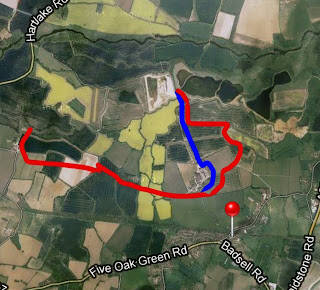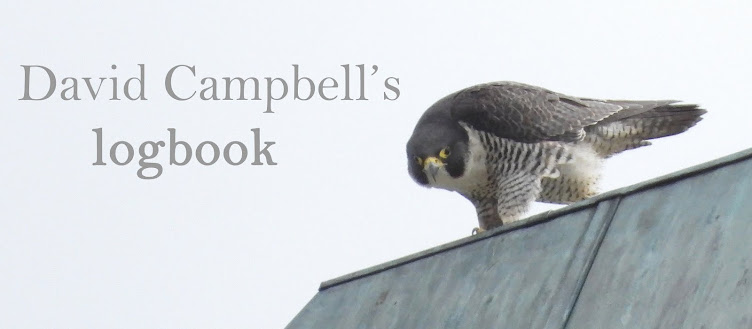 |
| blue is the route that should have been taken; red is our magical mystery tour |
Wednesday, 29 February 2012
I would walk five extra miles...
...for an insurance bird. Johnny picked me up from college early this afternoon and we headed to Whetsted Gravel Pits for the Hooded Merganser. I hadn't thought much about the bird until RBA put it out in capital letters and I wondered what the chances of it being a wild bird were. It got me thinking about how American wildfowl like Bufflehead, Lesser Scaup and American Wigeon get through with few questions asked, put there seems to be a bit of an automatic dismissal of Hooded Merganser occurrences. Of course it's impossible to be entirely sure of the origins of birds like this, and you can either take the innocent until proven guilty approach, or throw them all out until a wild-ringed or isotope-tested bird makes itself available. I'll just go by what the BBRC decides, in order to keep my list consistent.
We got to Five Oak Green without much trouble and found Moat Farm. The directions on the pager said 'take path from Moat Farm' so we followed the first path we came across for about two miles before we realised we'd gone wrong. We walked back to where we started and found another path which we followed, but along this one we took another wrong turning - it still took us to the correct spot but adding an extra couple of miles. By this time we were both thoroughly pissed off, it was pretty hot and I hadn't eaten or had a drink in hours. I worked out on Google Earth this evening that we walked about seven miles in total when we should have walked about two. On finding the right pit, we located the female HOODED MERGANSER - it dived frequently at first and the light was crap but after a few minutes it settled down and stayed about water for a while, preening and resting before resuming feeding. Didn't notice any rings and the wings looked alright - probably about as good as one will get in eastern England but I'll wait for the official decision on this bird before adding it to my list. If it acts like the 2005 Kent bird I can't see why it wouldn't get the rubber stamp, if the BBRC use constant criteria to assess each wildfowl record like this.
Labels:
Kent,
MEGA,
rarities,
Whetsted Gravel Pits

